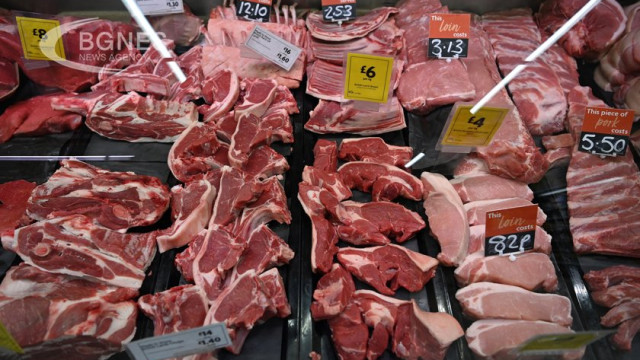Eating red meat increases the risk of type 2 diabetes, a new study by researchers at Harvard University's School of Public Health has found.
The team found that consuming more than one serving of red meat per week can significantly increase the risk of type 2 diabetes, which is also linked to obesity, lack of exercise and consumption of unhealthy food, including simple carbohydrates.
People who eat just two portions of red meat per week may have an increased risk of developing type 2 diabetes compared to people who eat less, with the risk increasing with greater consumption.
The team led by Dr. Xiao Gu emphasized that replacing red meat with healthy sources of plant protein such as nuts and legumes or moderate amounts of dairy foods is associated with a lower risk of type 2 diabetes.
The study followed many cases over years
"Our findings strongly support dietary guidelines that recommend limiting red meat consumption, and this applies to both processed and unprocessed meat," said Gu, who led the team.
The rate of type 2 diabetes is increasing rapidly in the Western and even the developing world, creating a serious burden on health care systems, as well as a major risk factor for cancer, cardiovascular and kidney disease, cancer and dementia.
For the purposes of the studies, researchers analyzed health data of more than 215,000 people. Their diet was assessed with food frequency questionnaires every two to four years, for up to 36 years – or a total of 5,483,981 years of follow-up. During that time, more than 22,000 people developed type 2 diabetes.
The researchers found that consumption of red meat, including processed and unprocessed red meat, was strongly associated with a higher risk of diabetes. Participants who were found to eat the most red meat had a 62% higher risk of developing type 2 diabetes than those who ate the least. Each additional daily serving of processed red meat is associated with a 46% greater risk of diabetes, and each additional daily serving of unprocessed red meat with 24%.
Replacing one daily serving reduces diabetes risk by 30%
Researchers evaluating the potential effects of replacing one daily serving of red meat with another protein source found that replacing it with a serving of nuts or legumes was associated with a 30% lower risk of diabetes. When replacing with dairy, the risk is lower by 22 percent.
"Given our findings and previous work by other scientists, a restriction of about one serving of red meat per week would be beneficial for people who want to optimize their health and well-being," said epidemiology and nutrition professor Walter Willett, Sr. research supervisor.
The researchers specified that in addition to the health benefits, minimizing consumption of red meat and instead eating healthy sources of plant protein will also help reduce greenhouse gas emissions and climate change, providing other environmental benefits. . The research team concluded that red meat consumption should be reduced and even eliminated and emphasized the importance of various alternative sources of protein to prevent type 2 diabetes. /BGNES







